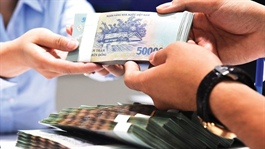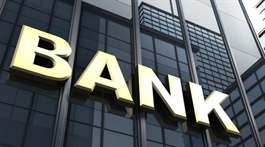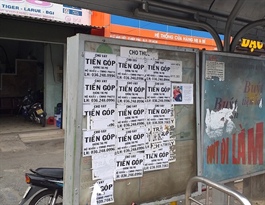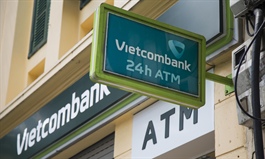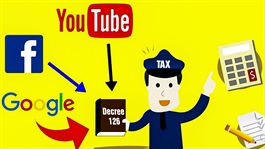Controversy over new provisions in Tax Law
Controversy over new provisions in Tax Law
There has been considerable controversy over Decree 126/2020/ND-CP since it was issued recently, which provides detailed provisions in the Tax Law, and which is set to be effective from 12 December 2020. Decree 126/2020/NĐ-CP issued by the Government states that banks must disclose account information with details of name, tax code, and date of opening and closing account to tax agencies.
Illustrative photo.
|
Saigon Investment spoke with Dr. NGUYEN TRI HIEU, a banking and financial expert, on his views on this recent controversial issue.
JOURNALIST: - Sir, recently there is a lot of controversy going on over the new Decree 126/2020/ND-CP. What is your opinion on it?
Dr. NGUYEN TRI HIEU: - I strongly disagree with the new regulations stated in Decree 126 and the provisions in the Tax Law. I have read some opinions of experts saying that it is a mandatory rule in the United States. This is totally incorrect. Banks in the US do not provide customer account information to any tax agency. I have lived in the US for more than ten years and I know for a fact that banks never disclosed my account information to a tax agency.
However, banks must provide the tax agency with information on amount of interest that the bank pays the customer on savings deposit, because this is a taxable benefit. Banks only provide customer information when ordered by the courts. For instance, if the tax agency suspects that an individual is trying to evade payment of some tax, it may ask the court to order the bank to provide information of bank account and related details to the tax agency so that they can begin a probe into any misappropriation.
I believe the tax agencies want banks to provide account information details of taxpayers so that they can recover taxes in case of any evasion. This, however, may lead to information misuse. The second issue is information confidentiality. Even when only the banks manage accounts, customer information will be disclosed and customer can lose money. Now, the tax agencies want information of tens of millions of taxpayers, so how will they ensure that all the information will be kept confidential?
If confidentiality fails, account information will leak out and fall into the hands of criminals, who can then use such information for their own nefarious gains. Who would then be responsible for the consequences? Additionally, if the tax agency asks a bank to disclose account information of a taxpayer, who would pay for the human resources and facilities for such activities as banks now have to minimize costs in order to be able to offer lower interest rates, and provide some support for the economy during these hard times.
Therefore, I do believe that banks must only provide customer account information when ordered by a competent court. In the event the tax agency wants to investigate somebody on suspicion of tax evasion, it may ask the relevant court to issue an order, and information will be provided to a certain extent only, but banks must never provide information of all other customers. I also think that the Government should consider putting pressure on people to pay tax on savings interest, because banks provide tax agencies on customer amount of interest, on which the customer can pay tax.
- Sir, some people think this regulation would make people avoid making payments and carry out transactions through the banking system, and may even be compelled to using cash, which is against the Government policy of trying to encourage people to limit use of cash. What is your opinion on this?
- Decree 126 will create a large space for the tax agency to conduct necessary investigations. If they see a very large amount of money going into a taxpayers account, they will become suspicious of the taxpayer making profits without paying enough taxes. When the tax agency and officers have reasonable doubt, they can launch an investigation.
The space is now so open that the tax agency could scour bank accounts, and this could create total chaos in the financial system. Furthermore, lots of people would be concerned that large amounts of borrowed money or an inheritance from their parents going into their accounts could be probed by the tax agency, so they will start to deal in cash only. As a result, although this regulation may look positive in that it can investigate someone on suspicion of tax evasion, it could also cause people to return to using cash in their transactions.
- Sir, such a regulation would enable the tax agency to obtain information about cash flow into e-commerce, cross-border business activities, especially when individuals receive revenue from their business activities through platforms like Amazon, Google and YouTube without paying tax on such income. How would you see this problem resolved?
- It is true that this regulation is meant to cover several purposes. One of them is to collect tax from people providing online business services, where a majority of people do not pay any tax. If Decree 126 is imposed, the tax agency will play safe and obtain information of any account, making it possible for them to trace necessary details. This would be good and it could be an effective way to reduce tax evasion by people doing online businesses. However, this regulation could also lead to other unpleasant consequences such as loss of confidentiality, information leaks, possible misuse by people accounts, and higher banking management costs.
For this reason, it is necessary to introduce specific regulations to deal with people providing online business services on social media like Google and YouTube. For example, a regulation should stipulate clearly that all people providing online business services must carry out any transaction through their bank account only and must agree to allow a tax agency to monitor this account. This means that we must locate the areas that the tax agency suspects will lead to tax evasion so that the tax agency can supervise these areas. It would not be fair to make trouble for millions of people just because of a few people that are providing online services and are possibly evading paying their taxes.
- Thank you very much.








